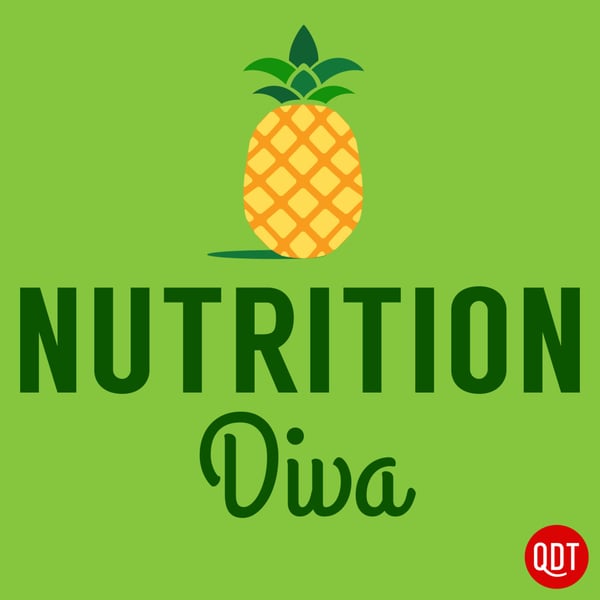Is Your Calorie Counter Lying to You? (Reissue)
Nutrition Diva
Macmillan Holdings, LLC
4.3 • 1.7K Ratings
🗓️ 16 March 2021
⏱️ 12 minutes
🧾️ Download transcript
Summary
Transcript
Click on a timestamp to play from that location
| 0:00.0 | Hello and welcome to the Nutrition Diva podcast. I'm your host Monica Rinegall. If you're |
| 0:10.0 | a new listener, welcome. And if you're a long time listener, thank you for tuning in and |
| 0:15.8 | also for sharing the podcast with your friends and family. |
| 0:19.2 | Today's episode was suggested by listener James, who called into the Nutrition Diva listener |
| 0:23.6 | line with this question. |
| 0:26.0 | Hey Monica, this is James. I was wondering if you could devote an episode on calories and what |
| 0:34.8 | they are, how they're measured and how we process them even though they're just a measurement |
| 0:46.3 | of food and not actual food and what a bomb calorimeter is and all the problems with |
| 0:54.9 | counting calories. So that would be awesome. I love to hear that podcast. Thanks. |
| 1:03.4 | Thanks for this great topic James. So let's start with what a calorie is and how we know how many |
| 1:10.4 | calories a food contains. A calorie is a unit of measure, like an inch or a kilogram, only instead |
| 1:18.6 | of measuring length or weight, a calorie measures energy. Technically, a calorie is the amount of |
| 1:25.2 | energy it takes to raise one gram of water by one degree Celsius. Calories can be measured using |
| 1:33.8 | something called a bomb calorimeter. Isn't that a fun name? You might even have built a crude |
| 1:39.9 | version of a bomb calorimeter in sixth grade science class. In broad strokes, you submerge a chamber |
| 1:46.7 | in a bucket of water and you put a thermometer in the water and then inside that submerged chamber, |
| 1:52.7 | you set something on fire. The heat generated by the combustion raises the temperature of the water |
| 1:58.9 | in the bucket and you can measure that with the thermometer and then you can calculate the amount |
| 2:04.3 | of energy or calories or in the thing that you set on fire. So we used to use bomb calorimeters |
| 2:12.4 | to calculate how many calories a given food contains. These days, however, it's much more common |
| 2:18.1 | to estimate the number of calories based on how much protein, fat, and carbohydrate of food |
| 2:23.9 | contains and those amounts can be determined through chemical analysis. Now, when we're using the |
... |
Please login to see the full transcript.
Disclaimer: The podcast and artwork embedded on this page are from Macmillan Holdings, LLC, and are the property of its owner and not affiliated with or endorsed by Tapesearch.
Generated transcripts are the property of Macmillan Holdings, LLC and are distributed freely under the Fair Use doctrine. Transcripts generated by Tapesearch are not guaranteed to be accurate.
Copyright © Tapesearch 2025.

